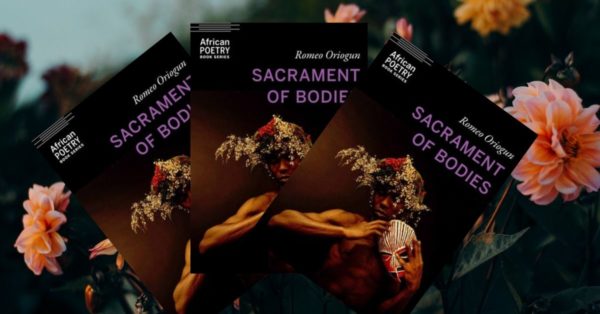
We are two months away from the arrival of Romeo Oriogun‘s debut poetry collection Sacrament of Bodies, from the University of Nebraska Press’ African Poetry Book Series. Sacrament of Bodies, an interrogation of queerness, masculinity, and Nigerianness, follows Oriogun’s three chapbooks: Burnt Men (2016), The Origin of Butterflies (2018), and Museum of Silence (2019). Here is a description of the collection from the publisher’s website:
In Sacrament of Bodies Romeo Oriogun interrogates what it means to be queer, male, and Nigerian. In this groundbreaking work, Oriogun seeks to understand how a queer man can heal in a society where everything is designed to prevent such restoration. He explores the paradox of death ending pain while leaving the living with unanswered questions and reflects on the role class plays in survival and the father-son relationship. Ultimately, Oriogun’s poems deal with grief and how the body finds survival through migration.
Sacrament of Bodies examines queerness in Nigerian society, masculinity, and the place of memory in grief and survival.
Two of the book’s blurbs are by the Ukrainian-Jewish-American poet Ilya Kaminsky, author of the acclaimed collections Dancing in Odessa and Deaf Republic, and Ellen Bass, the American poet and Lamba Award-winning author of Mules of Love, Indigo, and Like a Beggar.
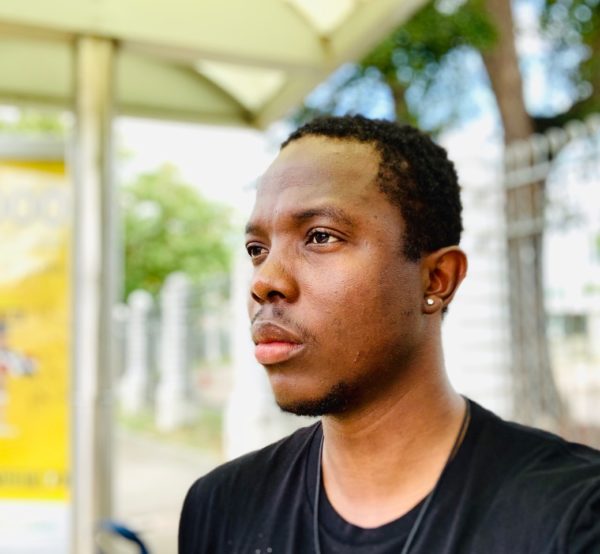
“Sacrament of Bodies is a very special book,” Kaminsky writes. “But why? Because Romeo Oriogun has developed a style that is both personal and mythical, because these poems are sensual and spiritual at once, because they give us both a story and a song, a shout and a whisper. ‘I have learnt to love every broken thing,’ Oriogun tells us. I find that Oriogun’s tension between the high style of a sermon and the earthiness of love songs gives these poems a particularly memorable touch. It is memorable also because it is able to give us a journey (through time, through forgetting, through elegy, through exile) that is both a story of a real man in real time and an incantation, a speaking in tongues. But it is his music that finally sways me, it’s music that lifts it all, that makes out of truth-telling a song. The music works here because Oriogun is a master of incantation: ‘I danced,’ he tells us, ‘as if I knew every song had a door.’ Indeed. I love this beautiful, heart-wrenching, passionate book.”
Bass describes the poems as making her “stronger.” It is “a gorgeous book filled with fiery pain and ecstatic desire,” she writes. “These poems are spacious enough to hold all the contradictions: the violence waged against gay people and the body’s insistence on love, the tenderness of flesh and the carnage of war, remembering and forgetting, silence and song. Romeo Oriogun has wrought complex, elegant poems that wrench beauty from all that would kill us. As he writes, ‘I worship the day because it survived the night.’ I admire these poems immensely.”
Oriogun, who won the 2017 Brunel International African Poetry Prize and was a finalist for The 2017 Brittle Paper Award for Poetry and the 2018 Sillerman First Book Prize for African Poets, is the Editor-in-Chief of Kabaka. Most recently an Institute of International Education Artist Protection Fund Fellow and a Harvard Scholars at Risk Fellow at Harvard’s Hutchins Center for African and African American Research, he is presently studying for an MFA at the Iowa Writers’ Workshop.
Pre-order the collection HERE.



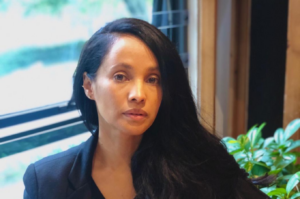

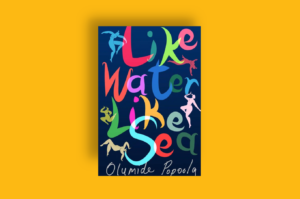
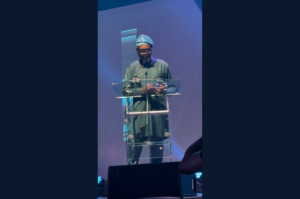


COMMENTS -
Reader Interactions